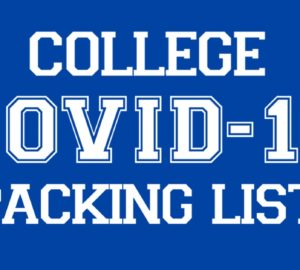Do Not Let Your Child Leave For College Without Signing These Forms
- “4 Months 4 Student Deaths!” blared the disturbing headline of The University of Miami student newspaper. This is enough to make any parent shudder!
- While we can’t predict the future, having crucial paper work taken care of, will help navigate the medical system with greater ease. So, let’s make it a priority to have our college age students sign these critical documents.
- Most parents and children are unaware of the medical and legal consequences that occur on your child’s eighteenth birthday.
- Here is the information you need to be informed. Do not let this important task get lost in the shuffle during the chaotic senior year activities and college packing.
If your child is over 18 they are a legal stranger to you
The leading cause of death in young adults are accidents, and over 250,000 Americans between the ages of 18-25 are hospitalized for non lethal injuries each year. The danger is real and not something most parents or children want to think about before college. However, The Privacy Rule of the Health Insurance Portability and Accountability Act, also known as HIPAA, in essence makes your child a legal stranger to you. As a parent you have no more right to obtain medical information about your child than you would for a stranger on the street. This is also true if your child is on your insurance plan and you pay their medical bills.
Some medical providers will decide to disclose information to you without your child’s permission, if they see it is in the best interest of the patient. However, because of strict HIPAA rules, doctors will often protect patient privacy especially if they do not know you. If your child is at a university out of state, the likelihood that you would know the doctor or hospital is low, which makes it even more likely that the doctors will adhere more strictly to HIPAA rules.
How to protect your family in an emergency
- Four forms can help protect your family in case of an emergency.
- Keep in mind that if your child is at school out of state, it is important to sign forms for your home state as well as the school’s state.
- Once they are signed scan them into your phone, your child’s phone and make sure to save them on your computer.
How can I do this?
You have a few choices. You can do it yourself, hire a lawyer, or use Mama Bear Legal Forms. We highly recommend Mama Bear Legal Forms Young Adult Power of Attorney package which includes health and financial power of attorney, HIPAA release and FERPA waiver. They also offer a second state free, so you can have forms in your home state as well as the state your child is attending college. Additionally they have a free app to scan and store the documents. Mama Bear Forms takes this guess work out of doing it yourself, and is much less expensive than hiring a lawyer directly. I was thrilled to find this company after doing it myself the first time around. Sign up here and use code ENN20 for twenty percent off (we are afilliates, but would not promote anything we don’t use and love.) However you choose to do this, read below to understand the purpose of each form.
What forms should you consider?
HIPAA Authorization:
This form, when signed, allows healthcare providers to disclose your information to the person or people you have specified. You can sign a stand alone HIPAA authorization and this does not need to be witnessed or notarized. If your child does not want to disclose certain medical information they can limit what is disclosed to you. They might limit health related issues concerning sex, mental health or drugs. It does not have to encompass everything and this is a personal decision that your child can make and you can discuss in advance. Obviously, in case of emergency one that is not limited will provide you with the most flexibility and information, so that should be your first choice.
Medical Power of Attorney:
In case your child is incapacitated and unable to make decisions a medical POA allows them to appoint an agent to make these decisions for them. States vary in laws related to medical POAs and often times it is combined with HIPAA authorization. States have different rules regarding the needs for notarization or witnesses. The medical POA goes by other names including durable power of attorney for health care, healthcare power of attorney, or designation of healthcare proxy. It is important to know that this is one type of advanced directive. The other type is a living will, which contains the specifics of your wishes in critical situations with regards to interventions, if you are unable to give them. Some states combine the living will, medical POA and HIPAA authorization in one document.
Durable Power of Attorney:
This form addresses legal and financial concerns. Your child can appoint an agent to act on their behalf if needed. Again, these vary by state so make sure you check the requirements and forms. This comes in handy if your child is abroad and you need to sign a lease on their behalf, wire money from their account, contact an embassy or sign tax returns. Interestingly, it may also allow you access to your child’s grades, something you are not entitled to even if you are paying the tuition (see FERPA below). This is a broad document but stipulations can be put into effect that narrow it such as specifying a date or an event of activation. An alternate should be named as well in case the agent is unable or unwilling to serve.
FERPA Release Form:
FERPA stands for the Family Educational Rights and Privacy Act which mainly has to do with protecting privacy rights concerning educational records. However, many times the Health Services department on campus is covered under both HIPAA and FERPA. Consider having your child sign a “Student Information Release Form” which can include both access to the educational and medical records. You should make sure to contact the college directly to find out the specific options and forms for that school because policies differ. It is important to ask if they have a form that can be signed that can cover medical records and addresses your ability to speak to the health care providers directly.
Be safe not sorry!
I know of many parents that were thankful to have these forms when emergencies required them. I also know the struggles that families without these forms have had to endure, at a time when they least needed additional stress. Even if the emergency is not life threatening, these forms will allow you to speak directly to medical professionals your child has seen on campus and off. Often your child will be navigating the health care system for the first time without you. While this is a growing experience many young people still want to know that their parent can be involved with complex issues such as treatment decisions if they would like them to be. If the school has any specific forms they use, fill these out too. You do not need a lawyer to fill out the forms but you may want to consult with one to ensure everything is in order.
Hopefully, these documents are something you will never need to use, but you will have peace of mind knowing that you have them just in case.
Now that you have the forms checked off your list, head over to this article to learn about dorm room shopping and the items you will need.
Helpful Links:
Mama Bear Legal Forms: Young Adult Power of Attorney Package Use code ENN20 for a 20% discount
Find up to date Health care power of attorney for different states at caringinfo.org
HIPAA information from US Department of Health & Human Services: https://www.hhs.gov/hipaa/index.html
FERPA information from US Department of Education: http://www2.ed.gov/policy/gen/guid/fpco/ferpa/index.html







Yes, parents often forget that an 18 year old is no longer a child. They are a legal adult and therefore are now responsible for many more things than before.
YES! AGREE! this is so true. It’s important to teach responsibility and I love all of your tips!! Will eep them in mind
These are great tips! Living abroad, I wish I had signed some of these. Handling things like this from abroad can be very frustrating and time consuming.
This is really helpful! Leaving for college is already pretty overwhelming so these suggestions to take care of some pretty important things, while everything else is going on is definitely a good reminder!
-Madi xo | http://www.everydaywithmadirae.com
Doing this can save so much time during an emergency. Too bad there isn’t a form to see their grades! Especially since parents are usually the ones paying tuition. Haha.
Wow I have never even thought about these! I am about to graduate from college and never knew these were something to take care of!
Natalie
http://www.thegracereal.com
Such interesting information that I would never have thought of. Plan for the worst. Obviously no one wants to think of these situations but so important.